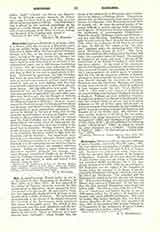

Rinuccini, GIOVANNI BATTISTA, b. at Rome, 1592; d. at Fermo, 1653, was the son of a Florentine patrician, his mother being a sister of Cardinal Ottavo. Educated at Rome and at the Universities of Bologna, Perugia and Pisa, in due course he was ordained priest, having at the age of twenty-two obtained his doctor’s degree from the University of Pisa. Returning to Rome he won distinction as an advocate in the ecclesiastical courts, and in 1625 became Archbishop of Fermo. For the twenty years following, his life was the uneventful one of a hard-working chief pastor, and then, in 1645, he was sent as papal nuncio to Ireland. Maddened by oppression, the Irish Catholics had taken up arms, had set up a legislative assembly with an executive government, and had bound themselves by oath not to cease fighting until they had secured undisturbed possession of their lands and religious liberty. But the difficulties were great. The Anglo-Irish and old Irish disagreed, their generals were incompetent or quarrelled with each other, supplies were hard to get, and the Marquis of Ormond managed to sow dissension among the members of the Supreme Council at Kilkenny. In these circumstances the Catholics sought for foreign aid from Spain and the pope; and the latter sent them Rinuccini with a good supply of arms, ammunition, and money. He arrived in Ireland, in the end of 1645, after having narrowly escaped capture at sea by an English vessel. Acting on his instructions from the pope, he encouraged the Irish Catholics not to strive for national independence, but rather to aid the king against the revolted Puritans, provided there was a repeal of the penal laws in existence. Finding, however, that Ormond, acting for the king, would grant no toleration to the Catholics, Rinuccini wished to fight both the Royalists and the Puritans. The Anglo-Irish, satisfied with even the barest toleration, desired negotiations with Ormond and peace at any price, while the Old Irish were for continuing the war until the Plantation of Ulster was undone, and complete toleration secured. Failing to effect a union between such discordant elements, Rinuccini lost courage; and when Ormond surrendered Dublin to the Puritans, and the Catholics became utterly helpless from dissension, he left Ireland, in 1649, and retired to his diocese, where he died.
E. A. D’ALTON.

